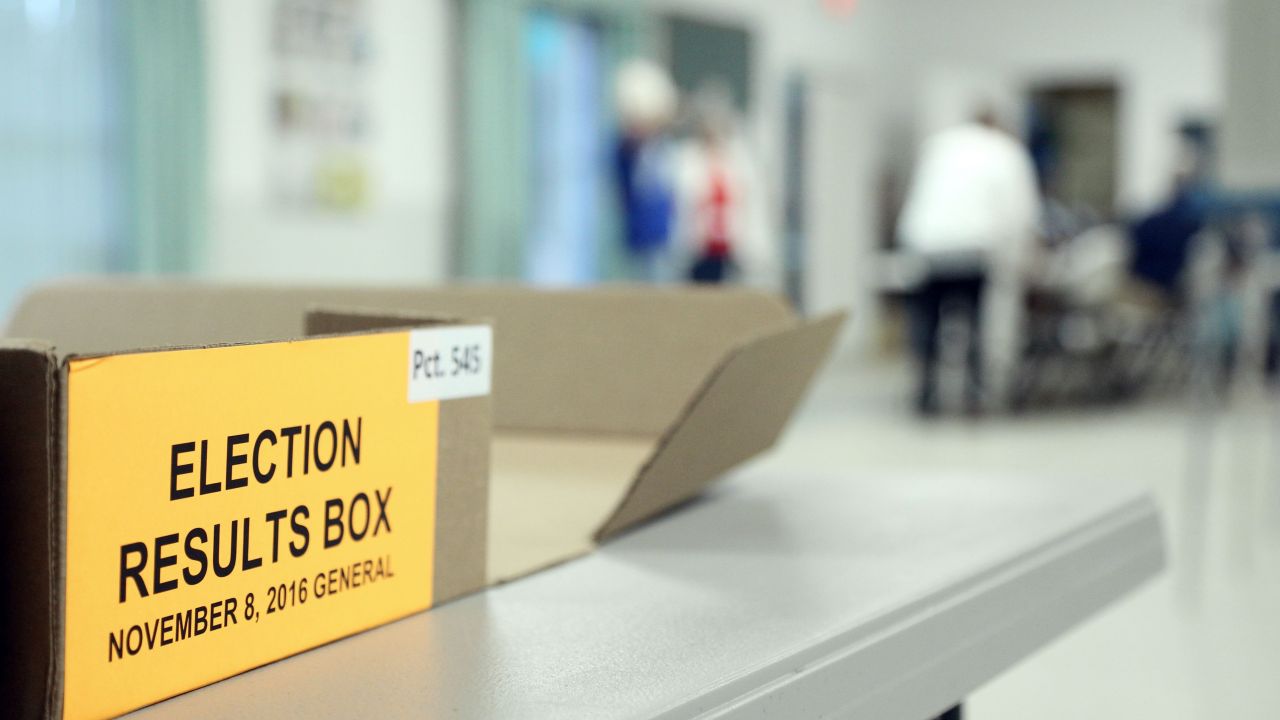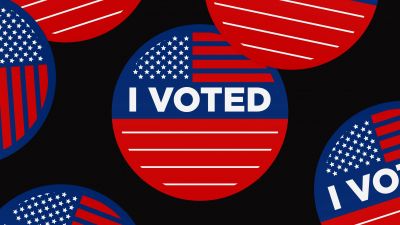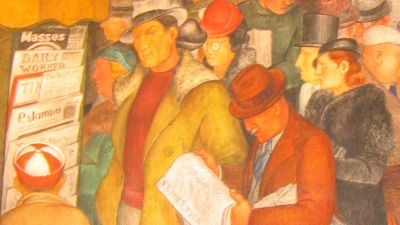
Ballot boxes before voting starts inside a polling station in Christmas, Florida, on November 8, 2016. (GREGG NEWTON/AFP/Getty Images)
We produce this news digest every weekday. You can to receive these updates as an email newsletter each morning.
Today’s the day –> Get out and vote! And tell your friends, family and neighbors to do the same. Any information you need — location, candidates on the ballot — can be found online via the League of Women Voters’ Vote411 project.
Predicting the outcome –> Many have been biting their nails, watching election guru Nate Silver’s FiveThirtyEight website over the course of the year and especially these last few weeks and days, as chart lines representing Trump and Clinton have risen and fallen. (For what it’s worth: As of 8:26 a.m. on Election Day morning, the FiveThirtyEight gives Hillary Clinton a 72.2 percent chance of winning, and Democrats have only a 50.7 percent chance of retaking the Senate).
But: Many have been frustrated with Silver, claiming he has hedged more than in the past, overly cautious in a very uncertain presidential election year — and, thus, favoring Trump. These frustrated poll-watchers have instead turned to the Princeton Election Consortium’s Sam Wang. Writes Wired’s Jeff Nisbet: “When the smoke clears on Tuesday — and it will clear — what will emerge is Wang and his Princeton Election Consortium website and calculations (which have been used, in part, to drive some of the election poll conclusions at The New York Times’ Upshot blog and The Huffington Post’s election site). What will be vindicated is precisely the sort of math approach that Silver once rode to fame and fortune.”
A guide to voter suppression –> The Washington Post looks at what qualifies, and how you can report it if you see it.
What message should Republicans (and Democrats) take away from Trump’s candidacy? –> Most experts predict that Trump will lose. (Although it’s not over yet — vote!) So what will become of the GOP voters he claims to represent? Many seem animated both by racial animus and a hatred of elites that they believe have turned their backs on the people who live outside of America’s power centers. Traditional GOP leaders like Paul Ryan and even tea-party types like Sarah Palin and Ted Cruz don’t represent these voters.
Reporting for the NBC News website, Benjy Sarlin went to Manchester, New Hampshire to talk with some of them: “Supporters sometimes struggled Monday to articulate which elements of Trump they would want to carry into the party if he’s no longer a candidate,” he writes. “Some mentioned issues like trade, immigration and crime. There was his refusal to hew to ‘political correctness,’ itself a nebulous term that can apply to anything from campus safe spaces to public norms against bigotry. The most consistent thread was a broad populism and an anti-corruption message that mostly avoided specific policies…”
Mixed report card for the press –> Brian Beutler writes for New Republic: “A key component of successful journalism is the unearthing and relaying of facts, and on this score the media — faced with an historically opaque candidate, and one with an instinct for opacity, but a long public record — did a good job. Despite Trump’s best efforts, we know much more about him today than we did before this election started. Through less laborious processes we also know more about Hillary Clinton.
“But another key component of journalism is the framing and contextualizing of events and new information: How do you take that raw material and present it in ways that doesn’t just provide consumers with new data points, but help them suss out how critical those data points are and what they mean in the scheme of things? Here, major media outlets failed abysmally. The best illustration of this came just days ago, when a media monitor tallied the amount of time nightly news broadcasts devoted to stories about Clinton’s emails, and the amount of time they devoted to stories about all policy matters combined, and found that the former exceeded the latter.”
The latest unexpected source of voter misinformation –> Urban Outfitters, believe it or not. Justin Elliot writes for ProPublica that the clothing retailer, which sells hipster gear off the rack and is found in malls across America, tweeted out a link to an election guide put together by the store claiming that voters need a “voter registration card” as well as an ID before they show up at the polls. While this is true in some states, it is far from true nationwide. Worth noting that the stores’ customer base is largely young people, who favor Democrats, and the store’s owner, Richard Hayne, favors Republicans, donating some $15,000 to the National Republican Congressional Committee, Paul Ryan and other candidates this election cycle, and far more in 2012.
Morning Reads was compiled by John Light and edited by Michael Winship. See a story that you think should be included in Morning Reads? Tell us in the comments!
We produce this news digest every weekday. You can to receive these updates as an email newsletter each morning.



